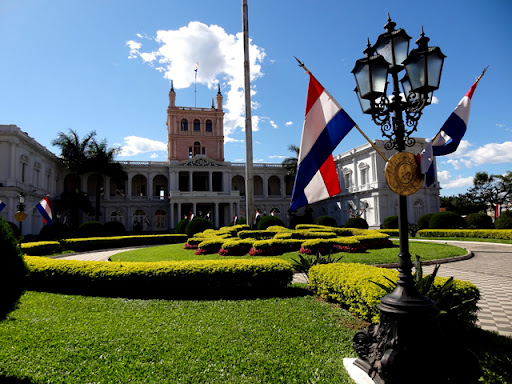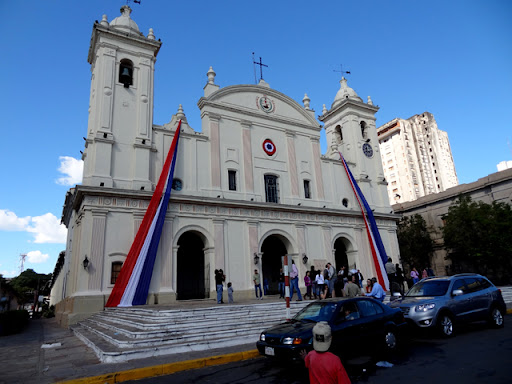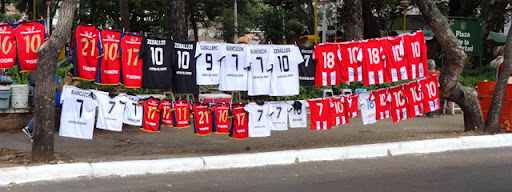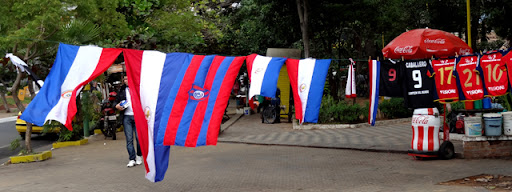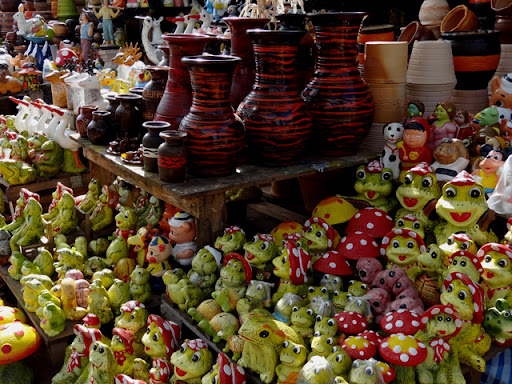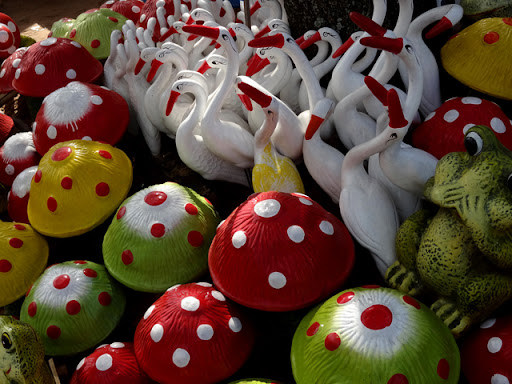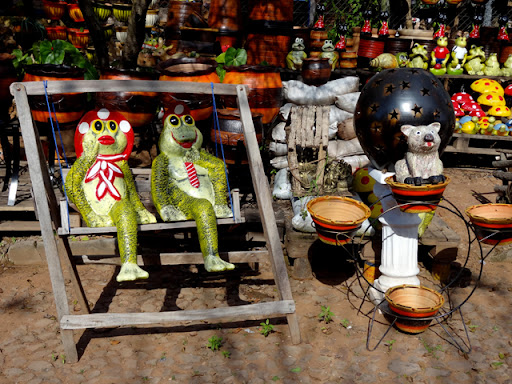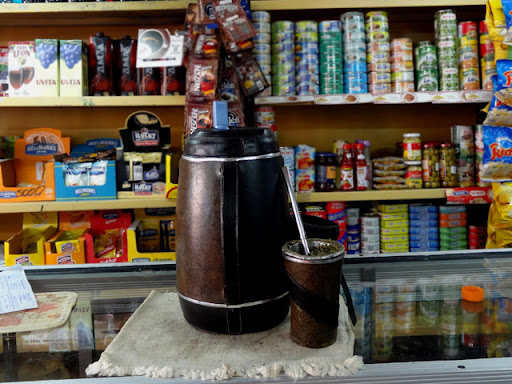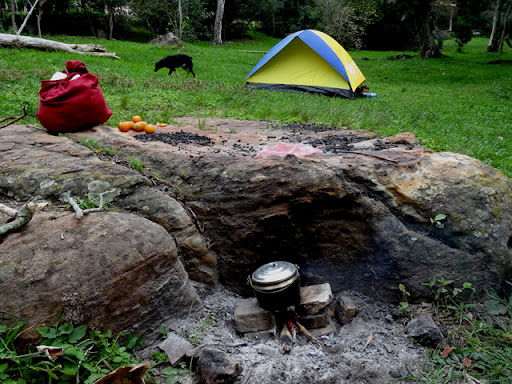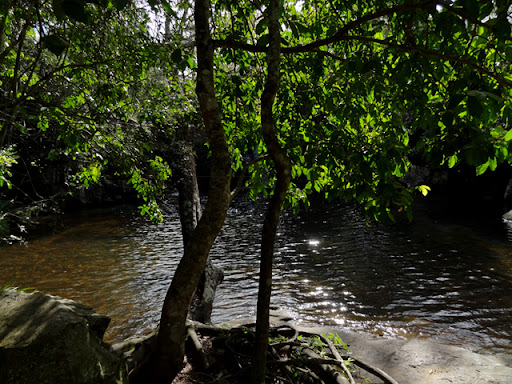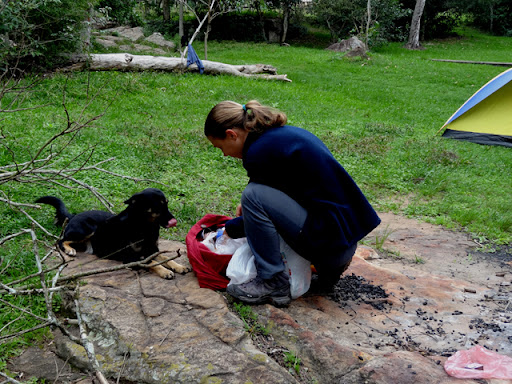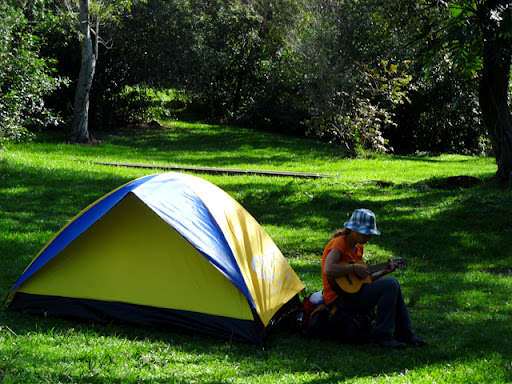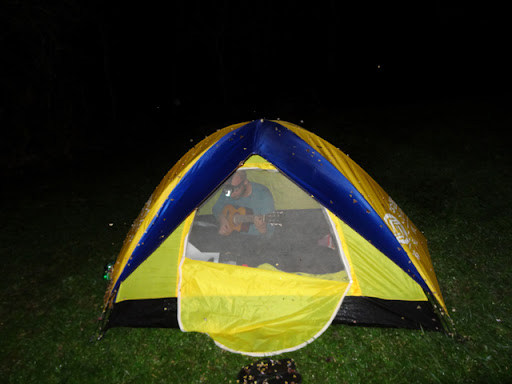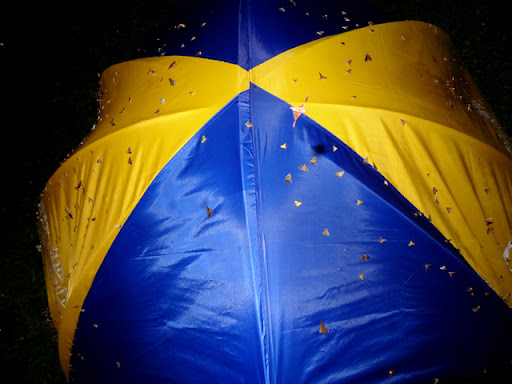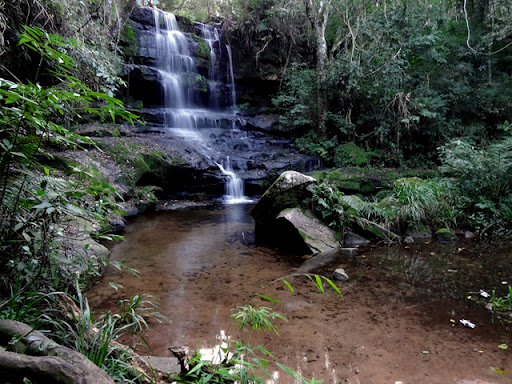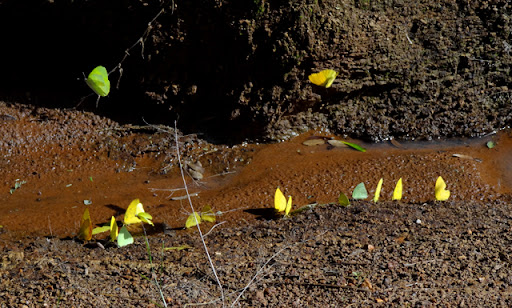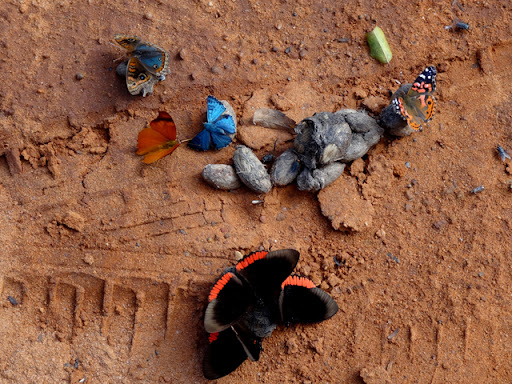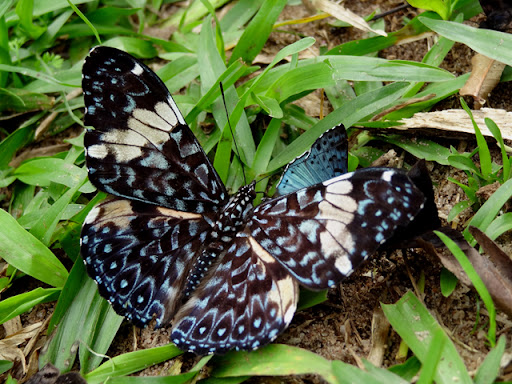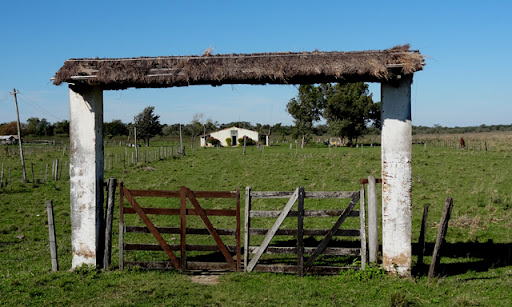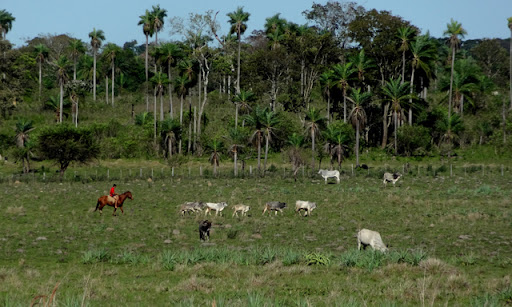The quiet and simple beauty of Paraguay
Very few travellers come to Paraguay and, reciprocating this attitude, Paraguay doesn't expect any travellers. (So far it's been the only country where we couldn't find a single postcard so had to make one). That's because it's not a country of stunning landscapes and striking culture: the lush but monotonous green pastures could be the foreground to dramatic mountains but in Paraguay are the essence of the scenery, and hedonistic consumption ("bread and circuses") is the axis of this heavily americanized culture, with its omnipresent huge supermarkets and popstar kind of TV shows. If countries were girls, Paraguay would be a quiet and simple, rather than a stunning and sophisticated one.
As to landscapes, the only truly striking memory was the road that starts directly after Bolivia (Trans-Chaco Highway) and passes through many kilometres of lowlands of the Chaco region with an amazing amount of bird species. One curious fact about Chaco is that apart from the large cattle estancias, agriculture here has been developed by German-speaking Mennonites from Russia. The highway is so wild that we drove for hours from Bolivia before stopping at an immigration point. But lack of people makes it popular with birds and we saw so many bird species and specimen (white, pink, black, brown, red) that it was like a fancy bird safari (the most gorgeous and visible bird due to size and numbers being the huge white stork with bright red beak). As to Paraguayan culture, the two things that struck us as unique to this country are the scale of mate-drinking (everyone, everywhere, mate being a tonic herb) and the amount of nudity in media (it's so high that scarcely-covered big-breasted women were indispensable even in a political talk-show about the armed replacement of government that had just taken place when we arrived in Paraguay, although all they could add on the topic was "I'm sorry, I don't really know what happened"). But the country has its quiet charm, and its hectares of land, the locals' passion for supermarkets (and/or nude women on TV) lure in a lot of Koreans (making it one of the biggest Korean diasporas in the world).
Our stay in Paraguay was very brief and uneventful (except for the bird safari and the shots we heard on the very first evening in Asuncion). In all honesty, we came because we needed to bridge the time gap between the expiration of my Bolivian visa and the date we needed to go to Buenos Aires to meet Jordi's mum, who'd join us in travelling Argentina and Chile during her summer vacation.
Immigration:
After the long drive from the Bolivian border we finally made a stop at a place that looked like a gas station (a former garrison town Mariscal Estigarribia and now a transport hub). The drivers told us to take all our belongings and get off the bus for a customs check. Apparently, drugs was the main object of search and we were glad we'd left behind the small bag of coca leaves we bought back in Bolivia, as coca was on the list of drugs. It's funny how nations are always really subjective in those drug lists definitions, as marihuana, coca, mate and other types of herbs appear in different sides of "allowed/not allowed" lists depending on the country. For instance, Bolivian miners cannot work without coca and the Chilean ones are not allowed to consume either coca or even mate de coca, but we heard that marihuana is quite common in Chile so there are talks about legalizing it. In this specific border they'd fine us for carrying any coca or marihuana, but the whole nation drinks so much and such strong mate the whole day that they are probably a little high all the time. On top of that, with the thorough check for drugs that they conducted, we heard from two truck drivers we hitchhiked with in Chile that Paraguay is the biggest producer of hash as opposed to pure marihuana in Latin America (they explained this with very distinct contempt for the synthetic stuff over a joint of the "real thing").
The search at Mariscal Estigarribia was carried out manually by a few customs officers who personality-wise were a typical example of "a weak person with a gun", as they kept parading around in their uniforms, ordering us to line up along our bags as if we were criminals and making remarks to a couple of terrified foreign girls in the style "Did I give you permission to go to the toilet?". I'd replace the whole team with a couple of dogs (both more charming and efficient), but unfortunately at this border they didn't have a single canine customs officer, so the search went on forever as they made every one of us open every single bag and all the bags inside a bag etc. After a similar (in terms of efficiency) immigration check we finally could go back to the bus. From there it was a few more hours to Asuncion but we gained a couple more due to all the police checkpoints that stopped us along the way (each time a few overweight police officers getting on board and having a leisurely chat with the drivers).
And then we arrived. As always, the arrival agenda was: ATM, hotel. But somehow that evening things just didn't go smooth: ATM would want something like 5USD on top of our 2EUR bank fee for the withdrawal, so we had to change some cash (which we carry only for visa payments and emergencies - this qualified as an emergency till we'd figure out if there were better local banks with no fees). And then we started looking for a hotel: we checked the whole bunch of them around the station and because none of them really appealed to us, we decided to go to the centre and check some hostels over there.
Paraguayan parliamentary coup, June 22, 2012:
After half-an-hour ride we arrived at the colonial centre of Asuncion, with neat square blocks but architecture-wise very ordinary look. There was only one thing that was giving the city centre a weird vibe: occasional passers-by wearing hooded dark clothes in what otherwise looked like a dead place. After walking a few more blocks towards the centre we started seeing more signs that something was definitely going on: a lot of streets closed by police cars with lights on and guarded by heavily armed officers, small groups of people running by from time to time. And then we heard shots, somewhere very close. And again, and again. Something was going on after all. By that time we managed to find a hotel and asked them about rooms and what was happening. That's when we found out that the Paraguayan government was being replaced by a new one as we spoke.
Later on the news we'd learn that a certain part of the nation grew dissatisfied with the ex-president Fernando Lugo after the death of 17 peasants and police officers in an armed conflict (which was probably just a convenient pretext for impeaching Lugo), so they decided to replace him with Federico Franco which was ok according to the Constitution except for one tiny detail - they were supposed to give the "guilty" president 24-hours notice as a chance to provide a justification for the murky incident. Being on tonic all the time, Paraguayans are not a patient folk, so they skipped the 24-hour waiting and took over the government, which resulted in heavy critics on behalf of the international community (including first threats from Brazil and some other important Latin America's economies of expulsion from Mercosur and subsequent actual suspension of membership in both UNASUR and MERCOSUR) and outcries from many dissenting locals about how the 'revolutionaries' were robbing the nation of the first real although not the best democracy they'd ever had (a footage of one such protester - a hysterical woman screaming in an insane way - was especially popular with all the local channels, as they kept rotating the 2-minute video over and over). At the time of our search for hotel we didn't know much about what was going on, so the sensible thing to do was to get away from guns. (Dying for a noble cause makes sense but dying for a cause you don't know - doesn't.) The streets were dark and the atmosphere - ominous, so we decided to leave the centre and took the bus back to the terminal (with both the bus stop and the bus full of the hooded people and same ominous vibe).
In the light of the shooting back in the centre, the shabby hotels at the terminal definitely gained some appeal in the meantime, so we picked one with the most entrepreneurial owner (who sensing a real deal lowered the price significantly) and continued the evening by watching the news. What was funny and tragic at the same time was how the local channels all stopped broadcasting and discussing the impeachment of Fernando Lugo after quite a short while, so either even the armed change of government didn't justify an evening without the usual shows with nude chicks or that was the way the new government would have the news agenda for that day.
Currently there are still a lot of protests in Paraguay against the new government, which worryingly enough is busy conducting talks with trading elite and foreign investors instead of reconciling the problems with social, urban or campesino organisations. A curious coincidence is that just like behind the miners protests that we witnessed back in Bolivia earlier in May, there seems to be also a Canadian company behind the Paraguayan coup: apparently Lugo's government was divided and hesitant regarding setting up a massive aluminum plant near the Paraná River for Montreal-based Rio Tinto Alcan - a 4 billion project that would consume more energy than the country's entire 6.5 million population and damage the environment, but Franco's government promised Rio Tinto Alcan to proceed with negotiations quite swiftly!
Uneventful week in Paraguay:
As I've mentioned before, after such an eventful arrival the rest of our week stay in Paraguay was quite uneventful. The only things we did were 1) try out the mate (we bought the special spoons and glasses at one of the nearby supermarkets as well as a pack of "yerba mate" with mint); 2) apply for my Argentinian visa; 3) fix our netbook which had a major OS crash in Bolivia so even reset to factory settings didn't work (we asked a guy in a hardware store for a new recharger and he swiftly removed the battery to "diagnose the problem" before we had a chance to do the shutdown); 4) visit a village close to Asuncion where they sell a lot of garden pottery (Aregua); and 5) camp for a couple of days in the Ybycui national park (a few hours drive from the capital).
This camping was the only other memorable experience from Paraguay as we were the only visitors at the park so the whole huge camping right next to a small river with picturesque waterfalls was all at our disposal. On top of that for those few days we got a dog - it came and stayed next to us during our whole stay, joined us in all our simple meals, short walks and even the kungfu practice (although that one in a rather interfering and lazy way as it just lay around looking at us while we did all the forms, a few times almost stumbling over it). And while the park was not very striking, we did enjoy the butterflies, the peaceful sound of the river, the stars, the fire, playing the guitar (our new Bolivian travel-size acquisition - "guitarra viajera"), walking with the dog to the nearby Salto Guarani waterfall, the kungfu practice, a super-quick nude swim in the super-cold water (brrr :-) and all the moths attacking our bright yellow-blue "China Mobile" tent at night.
That's about it for Paraguay... And in case of questions, no, we don't know whether it's possible to get those Paraguay TV channels on cable :-)!
Asuncion:
Aregua:
A mate set:
Ybycui National Park:
The oranges came from several wild orange trees in our camp and were the only - really acid - fruit we ate during our stay in the Ybycui park:
Salto Guarani waterfall:
Butterflies:
And leaves:
A typical Paraguayan estancia:
Typical Paraguayan scenery:
